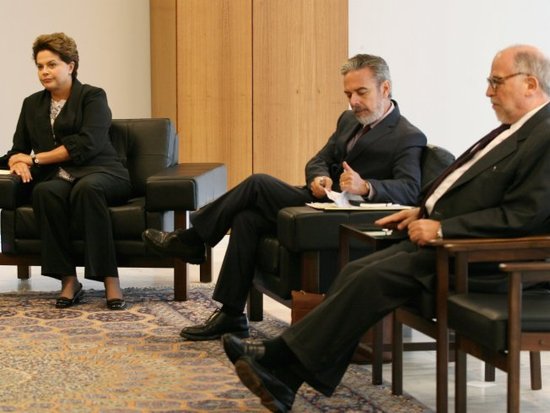Situation:
All conditions relevant to the case are materially the same as they were on May 17th except for the hypotheticals introduced specifically in the case.
You are a young Brazilian diplomat, currently on your second international assignment at the embassy in Asunción, Paraguay. You are known for your expertise in Brazil’s regional policy.
Brazil’s impressive growth is one of the determining aspects of international politics of the past decade; and analysts both at home and abroad are busy debating which role Brazil is to play on the global stage. While Brazil has still plenty of domestic problems to solve – ranging from poverty, a lack of social inclusion, bad infrastructure and deficits in basic education – it cannot be denied that Brazil is on the way to becoming one of the five largest economies of the world in the near future, a role which will require it to assume a lot more international responsibility than many can imagine today.
While Brazil’s growth has received cheers all over the world, Brazil’s immediate neighbors are increasingly wary of the emerging giant in their midst, fearing that it could simply replace the United States as the region’s hegemon, exploiting weaker members economically and bullying them politically. Brazil thus faces the very same challenges as India and China: How to increase economic influence in their respective region without being regarded as a predator?
The question of how its neighbors see it is a growing concern for the Brazilian government. As Brazil’s economic presence in the region grows, politicians in Paraguay, Argentina, Bolivia and elsewhere will be increasingly tempted to use Brazil as a scapegoat for economic woes. A string of incidents in the recent past serve as a clear indicator that anti-Brazilian sentiments in the region are on the rise. A large project to build a hydroelectric dam by Brazilian firms in the Peruvian Amazon was recently canceled when Peruvians voices their outrage after it became clear that most of the energy generated would be sent to Brazil. In Mendoza, Vale ran into difficulties after the Argentinian government accused it of not employing a sufficient amount of local staff.
In a recent meeting, a foreign minister of one of Brazil’s neighbors told you that his country was culturally more connected to several European countries, saying he felt “far away from Brazil”, which now “has a global focus rather than a regional one”. But the increasing presence of Brazilian companies in the region, the opaque nuclear policy (e.g. construction of nuclear-power submarines), “makes us uneasy”. In another meeting, a Uruguayan minister asked you, “when was the last time Brazil stood up for us?”
Assignment:
In a meeting of leading foreign policy makers, Antonio Patriota turns to you and asks you to write a memo to assess the situation. “I am worried that we got a bit carried away by our global ambitions, forgetting about the importance of our own backyard” he tells you. “It is possible that we are not doing enough to make sure our neighbors are comfortable with Brazil’s growing importance? As the United States slowly retreat from South America, will frustrated populists in our region begin to blame us for their internal problems? What can we do against that?”
Responding to Patriota, Marco Aurélio Garcia argues that fears of a regional backlash are overblown. “Rather than blaming Brazil, neighboring governments want to copy us”, he says, naming the recent presidential campaign in Peru as an example. “Even in Venezuela, the opposition candidate is now trying to depict himself as the next Lula.”
At the end of the meeting, the President chips in: “No matter who is right”, Dilma reasons, “I think we all agree that there is a tension between our global ambitions and our limited ability to exercise regional leadership. That compromises not only our regional policy, but also our legitimacy when we participate in international summits, such as the G20, IBSA or the BRICS. When we sought to enter the UN Security Council as part of the G-4, some of our neighbors, including Colombia, refused to support us. I think we need to develop a clearer vision about what we want South America to look like in ten or twenty years from now. Our neighbors are simply not fully convinced that our rise is good for them, too. And that, I think, brings us to the underlying question: What does our continent really mean to us? Is it a source of problems, a protective shield against international problems, a launching pad for our global ambitions, or something entirely different?”
Please provide a standard memorandum that includes Brazil’s relevant national interests, a brief historic overview, the operational objectives, three action options, the pros and cons of each action, and a specific recommendation.
———–
Students of the undergraduate course ‘Comparative Foreign Policy’ will present their memo in a briefing on Thursday, May 17th.
———–
Read also:
Why São Paulo needs a foreign policy
Watershed Interview on Brazil’s growing role in the world
In break with tradition, Brazil moves to curb Haitian influx
Leia também:
O Brasil deve mudar sua relação com o FMI
O argumento em prol do fortalecimento das relações Brasil- Índia
Folha de São Paulo: Mercosul requer avanços, diz diplomata
Photo credit: Agência Estado










